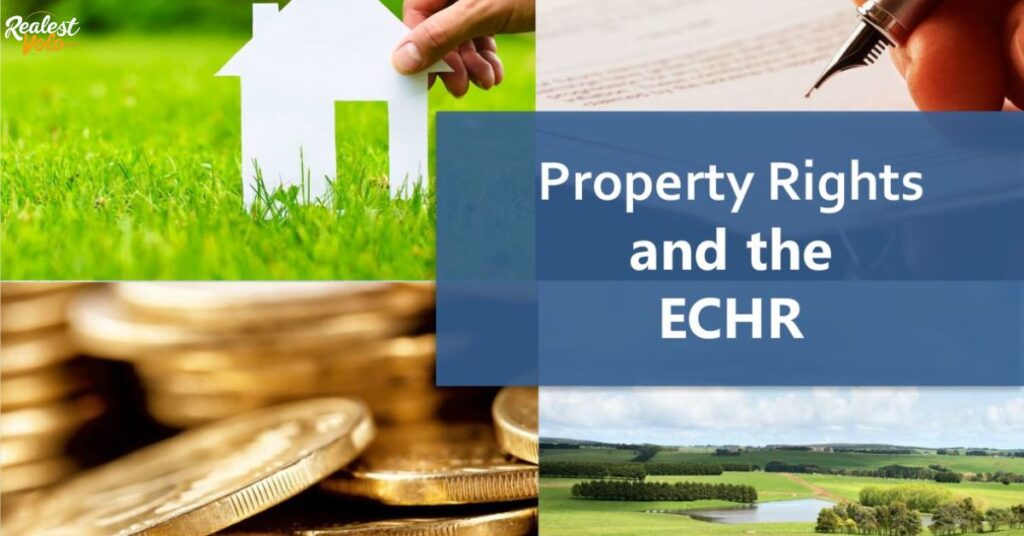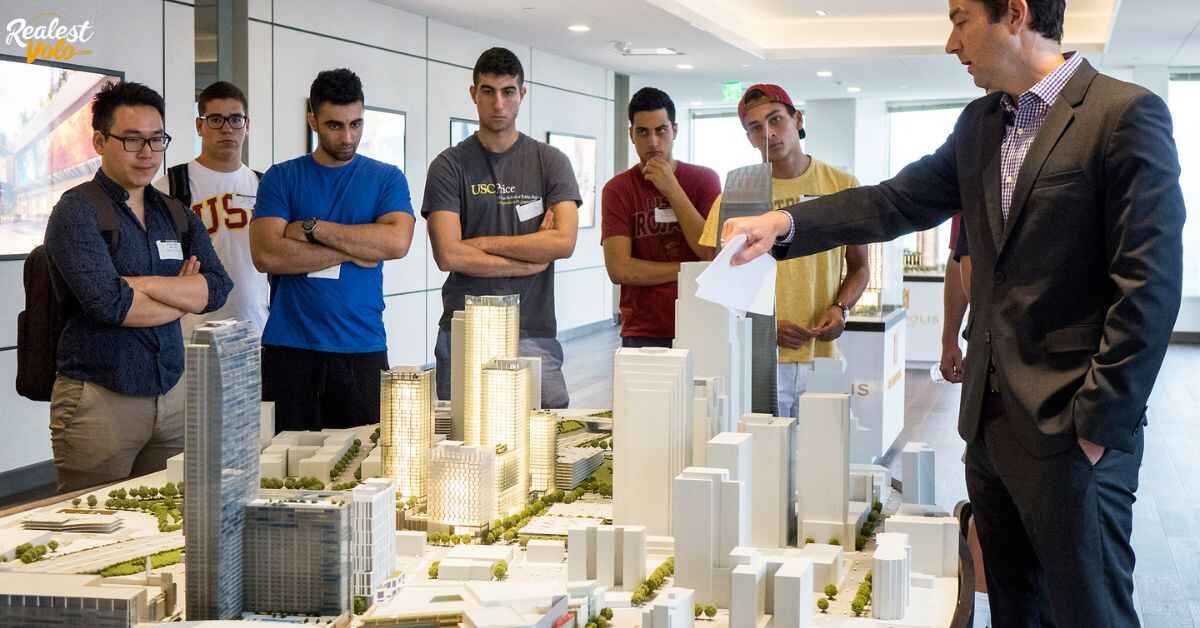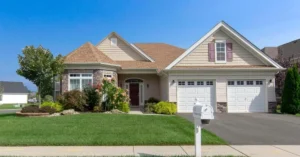In the ever-evolving landscape of real estate, the concept of grandfathering plays a crucial role in balancing property rights with community development goals. As local governments introduce new zoning regulations, building codes, and land-use laws, certain properties may find themselves in a legal gray area, where their established use or structure no longer fully complies with the updated rules. This is where the grandfather clause comes into play, allowing these properties to maintain their legal non-conforming status, preventing unfair hardship on property owners.
What Does Grandfather Mean In Real Estate?
In the context of real estate, a grandfathered property is one that is allowed to continue its existing use or structure, even if it violates new zoning laws, building codes, or regulations that were implemented after the property was established. This legal protection is often referred to as the grandfather clause.
For example, let’s say a residential property was built in the 1970s in an area zoned for single-family homes. Years later, the local government rezones the area for high-density multi-family housing. Thanks to the grandfather clause, the owner of the single-family home can continue using the property as intended, despite it no longer conforming to the new zoning regulations.
Grandfathering Provision And The Legacy Clause
The ability for these properties to maintain their established use or structure comes from legal provisions known as grandfathering clauses or legacy clauses. These clauses essentially grandfather in the existing use or structure, exempting the property from having to comply with new ordinances or regulations, as long as the use or structure remains unchanged.
The grandfathering provision is designed to protect the rights of property owners who established their use or structure legally, before the implementation of new laws or regulations that would otherwise render their property non-compliant.
Balancing Private Interests And Public Goals
Incorporating grandfathering provisions and legacy clauses into real estate laws and zoning regulations, local governments acknowledge the importance of finding common ground between private property interests and public development goals. These legal mechanisms provide a way to manage the constantly evolving real estate landscape in municipalities while respecting the rights and investments of property owners.
Also Read: Real Estate Career Quiz: Is Becoming A Real Estate Agent Right For You?
What Are Grandfathered Property Rights?

Grandfathered property rights refer to the legal protections that allow property owners to continue the existing use or structure of their property, even when new zoning laws, building codes, or regulations would otherwise prohibit or restrict such use or structure.
These rights are rooted in the principles of due process and the prevention of unconstitutional taking of private property without just compensation. Courts have generally upheld grandfathered rights to prevent unreasonable hardship on property owners who established legal uses or structures prior to the introduction of new laws or regulations.
Constitutional Foundations
The legal foundation for grandfathered rights stems from the constitutional protections against the deprivation of property without due process of law and the taking of private property for public use without just compensation.
In the landmark case of Pennsylvania Coal Co. v. Mahon (1922), the U.S. Supreme Court established the principle that government regulations that go too far in diminishing property values can constitute a “taking” that requires compensation under the Fifth Amendment.
Subsequent court rulings have further solidified the legal precedent for grandfathered rights, recognizing that property owners who established legal uses or structures before the enactment of new regulations should not be unfairly burdened or deprived of the reasonable use of their property.
The Legal Backbone Of Grandfathered Rights
The legal backbone of grandfathered rights is rooted in several key principles and court rulings that have shaped the legal landscape of property rights and land-use regulations.
Due Process And Unconstitutional Taking
The Fifth Amendment of the U.S. Constitution prohibits the deprivation of property without due process of law and the taking of private property for public use without just compensation. These principles have been the cornerstone of grandfathered rights, as courts have recognized that abruptly revoking established property uses or structures could constitute an unconstitutional taking without proper compensation.
Reasonable Use And Investment-Backed Expectations
Courts have also considered the concept of reasonable use and investment-backed expectations when evaluating grandfathered rights. Property owners who have made investments and established legal uses or structures have a reasonable expectation that their property rights will be respected, and they should not be deprived of the ability to reasonably use their property without due process.
Landmark Court Cases
Several landmark court cases have shaped the legal precedent for grandfathered rights, including:
- Pennsylvania Coal Co. v. Mahon (1922): This Supreme Court case established the principle that government regulations that go too far in diminishing property values can constitute a “taking” that requires compensation.
- Nollan v. California Coastal Commission (1987): The Court ruled that the government cannot condition the issuance of a land-use permit on the owner’s relinquishment of a constitutional right, such as the right to just compensation for a taking.
- Lucas v. South Carolina Coastal Council (1992): The Court held that when a regulation denies a property owner of all economically viable use of their land, it can be considered a taking requiring compensation unless the regulation is based on nuisance or property law principles.
These and other court rulings have reinforced the legal foundation for grandfathered rights, ensuring that property owners are not unfairly burdened or deprived of their reasonable use and investment-backed expectations without due process and just compensation.
Also Read: What Is Colonial Property Management In Real Estate?
The Essence Of Grandfathered Property Rights
At its core, the grandfathered status aims to prevent the unfair loss of property value or investment due to new rules or regulations that the property owner had no control over. It provides a reasonable accommodation for the non-conforming property’s pre-existing legal status, recognizing that abrupt changes could result in significant financial hardship or render the property unusable.
Protecting Investments And Property Values
One of the primary purposes of grandfathered rights is to protect the investments and property values of owners who established legal uses or structures before the enactment of new regulations. Abruptly revoking these established rights could result in substantial financial losses, rendering properties unusable or significantly diminishing their value.
By grandfathering in legal non-conforming uses and structures, property owners can maintain the reasonable use and value of their investments, preventing unjust devaluation or the loss of reasonable use due to circumstances beyond their control.
Reasonable Accommodation And Gradual Transition
Grandfathered rights also provide reasonable accommodation for properties that become non-compliant due to changing regulations. Rather than forcing immediate and disruptive changes, the grandfather clause allows for a gradual transition, giving property owners time to adapt or make necessary modifications to their properties as needed.
This gradual transition approach recognizes the practical challenges and potential hardships that property owners may face when confronted with sudden regulatory changes, and it aims to strike a balance between respecting existing rights and promoting orderly community development.
Grandfathered Use In Real Estate Development

When planning new real estate development projects, developers must be keenly aware of any grandfathered properties in the vicinity. While these properties are ultimately subject to zoning regulations and building codes, their legal non-conforming status can sometimes impact allowable construction heights, setbacks, or activities on adjacent lots.
Due Diligence And Identifying Grandfathered Properties
Careful due diligence is crucial to identify any potential conflicts or limitations imposed by nearby grandfathered properties. Developers may need to conduct thorough research, review zoning maps, and consult with local authorities to understand the specific grandfathered rights and restrictions associated with properties in the area.
By identifying grandfathered properties early in the development process, developers can better assess the potential impacts on their projects and plan accordingly, avoiding costly delays or legal disputes down the line.
Negotiating Reasonable Accommodations
In some cases, developers may need to seek variances, special permits, or negotiate reasonable accommodations with local authorities to ensure their projects comply with regulations while respecting the rights of grandfathered properties.
For example, a developer planning to construct a high-rise apartment building might need to adjust the building’s height or setback requirements to accommodate a nearby grandfathered single-family home.
Working collaboratively with local authorities and the property owner, the developer may be able to find a mutually agreeable solution that respects the grandfathered rights while allowing the project to move forward.
Mitigating Conflicts And Respecting Rights
Developers must exercise due diligence and work within the legal framework of grandfathered rights to mitigate potential conflicts and ensure their projects respect the established property rights of grandfathered properties. Failure to do so could result in legal disputes, project delays, or costly modifications further down the line.
By proactively identifying and addressing grandfathered property issues during the planning stages, developers can better navigate the complexities of real estate development while maintaining compliance with local regulations and respecting the rights of property owners.
Example Of A Grandfather Clause

To illustrate the concept of a grandfather clause, let’s consider the following example:
Imagine a small retail store that has been operating in a residential neighborhood since the 1960s. At the time, the zoning laws allowed for mixed-use development in that area. In 2010, the local government amended the zoning regulations, designating the neighborhood strictly for residential use only.
Thanks to the grandfather clause, the retail store is allowed to continue its operations, despite no longer conforming to the new zoning laws. As long as the use of the property remains unchanged the owner can maintain the grandfathered status and is not required to comply with the new residential-only zoning regulations.
This example demonstrates how the grandfather clause protects the established rights of property owners, even when the surrounding zoning landscape changes over time.
Maintaining Grandfathered Status: Limitations And Considerations
It’s important to note, however, that grandfathered rights are not infinitely guaranteed. If the use or structure of the property undergoes substantial changes or renovations, the grandfathered status may be lost, and the property may be required to comply with the new regulations.
For instance, if the retail store in the example above were to undergo a significant expansion or renovate to include additional services beyond retail, it could potentially lose its grandfathered status and be subject to the residential-only zoning laws.
Property owners must carefully consider the implications of any changes or modifications to their grandfathered properties and consult with legal professionals to understand the potential impact on their grandfathered rights.
The Role Of Experienced Real Estate Lawyers

Navigating the complexities of grandfather clauses, legacy provisions, and legal non-conforming uses can be a challenging task, especially for commercial properties or large-scale developments. An experienced real estate attorney can be invaluable in assessing your specific situation, understanding your rights and obligations, and helping to protect your investment interests.
Guidance And Advocacy
Real estate lawyers can provide guidance on zoning challenges, requests for reasonable accommodations, or potential legal actions to ensure your grandfathered rights are respected. They can also advise on the potential implications of renovations or changes to the property, and how those might affect the grandfathered status.
In situations where local authorities may be overstepping their bounds or infringing on established property rights, a knowledgeable real estate attorney can represent your interests and advocate for a fair resolution.
Expertise In Property Law And Zoning Regulations
Real estate lawyers specialize in the intricate legal landscape of property law, zoning regulations, and land-use policies. They possess a deep understanding of the relevant statutes, case laws, and regulatory frameworks that govern grandfathered rights and non-conforming uses.
This expertise allows them to navigate complex legal issues, interpret regulations accurately, and develop effective strategies to protect their clients’ property rights and investments.
Negotiation And Dispute Resolution
In addition to providing legal counsel, real estate lawyers can also assist in negotiating with local authorities, developers, or other stakeholders to reach mutually agreeable solutions when conflicts arise related to grandfathered properties.
Their negotiation skills and knowledge of dispute resolution processes can help facilitate compromises, seek variances or special permits, and prevent costly legal battles when possible.
By partnering with experienced real estate lawyers, property owners and developers can better navigate the complexities of grandfathered rights, ensuring compliance with regulations while protecting their investments and property interests.
Frequently Asked Question
What Does “Grandfather” Mean In Real Estate?
Grandfathering refers to allowing existing structures or land uses to continue even if they violate current zoning laws or regulations.
How Does Grandfathering Work In Real Estate?
It typically exempts existing properties or uses from new zoning restrictions or requirements.
Why Is Grandfathering Important In Real Estate?
It helps avoid disrupting established properties or businesses that may not comply with new regulations.
Can Grandfathered Properties Be Altered Or Expanded?
In many cases, they can be maintained or renovated, but expansions or significant alterations may require adherence to current zoning laws.
Are There Limitations To Grandfathered Status?
Yes, it usually doesn’t apply to changes in ownership or if the property is abandoned for a certain period, and it may be subject to specific conditions outlined in local regulations.
Conclusion
Understanding grandfathered rights is vital for anyone involved in real estate, whether as a property owner, developer, or investor. It allows legal pre-existing uses and structures to co-exist with new community plans and regulations, preventing unjust property devaluation or the loss of reasonable use.
With the guidance of experienced real estate professionals and a firm grasp of the legal landscape, the legacy of these “grandfathered” properties can persist while communities continue to progress and adapt to changing needs.
Respecting the rights of property owners and finding common ground between private interests and public goals, the grandfather clause and legacy provisions contribute to a more harmonious and sustainable real estate environment.
As local governments continue to introduce new zoning regulations, building codes, and land-use policies, the concept of grandfathering will remain a crucial legal mechanism for balancing property rights with community development objectives, ensuring fairness and responsible growth in the ever-evolving real estate landscape.











